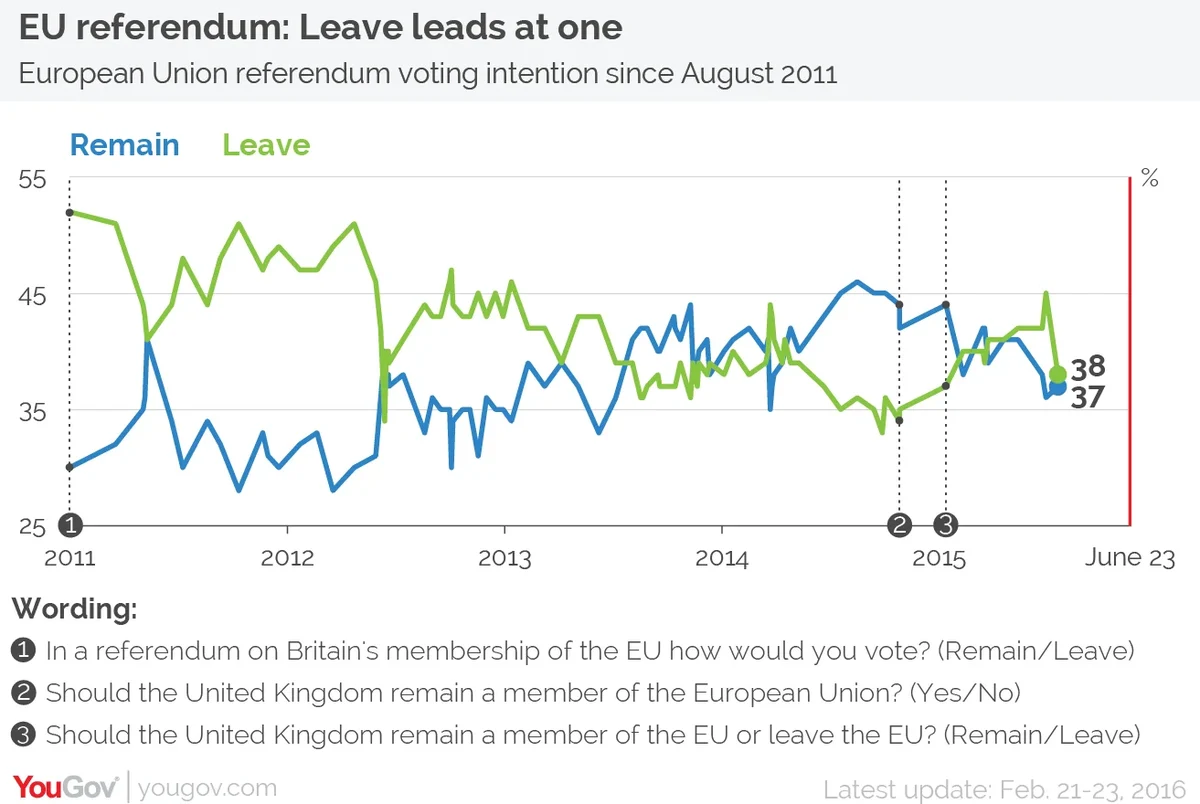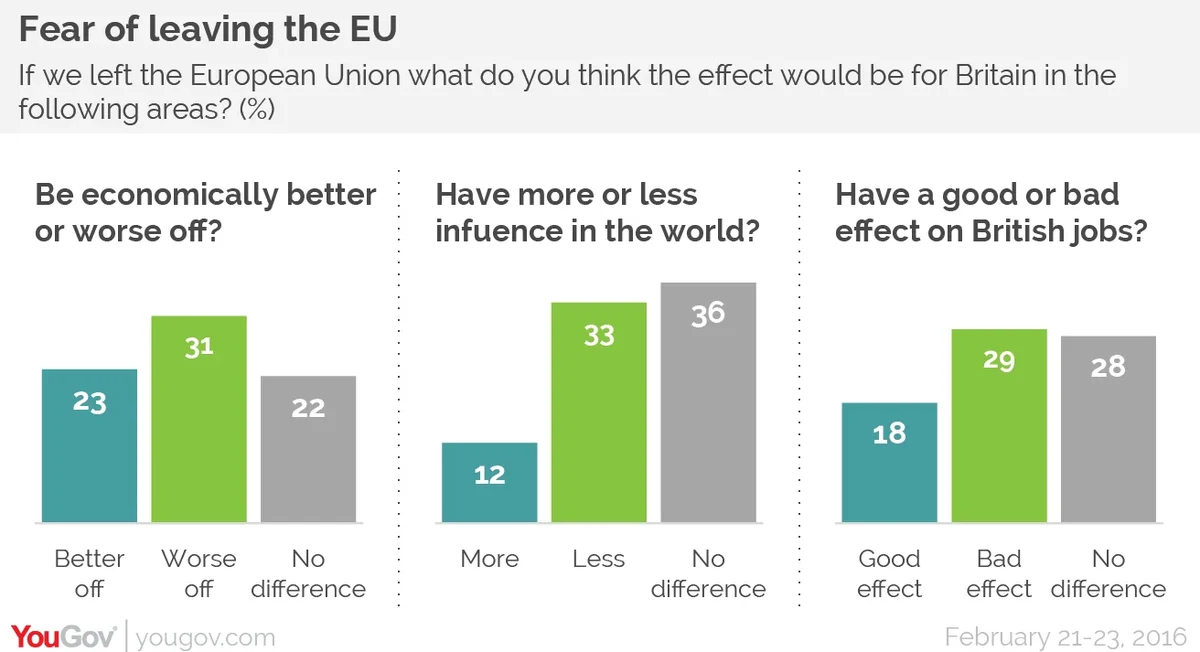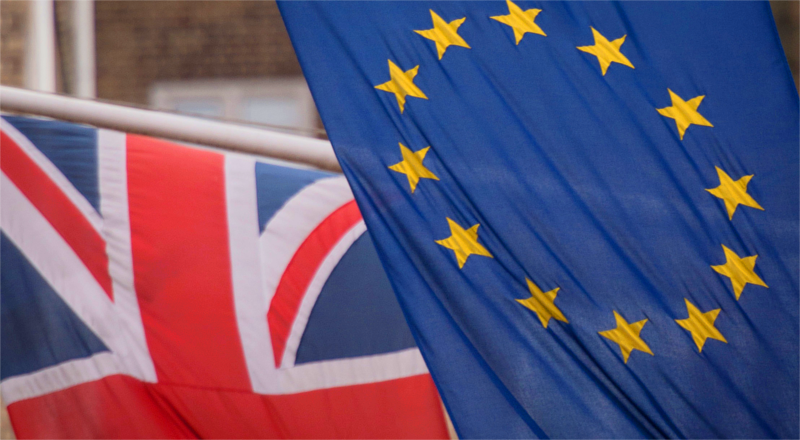Leave are currently ahead, but referendum polls this far out are a poor guide, and the underlying figures favour Remain
- Our latest EU referendum voting intentions are 37% Remain, 38% Leave, 25% Don’t know or wouldn’t vote
- Historically referendum voting intention polls have changed a lot in the run up to the vote, and polls this early are not a good guide to the eventual result
- Underlying questions suggest Remain have several advantages – the public see leaving the EU as a risky option, which would have a negative effect on jobs, the economy and British influence
Our latest voting intention polls show that in a referendum tomorrow 37% would vote to Remain, 38% would vote to Leave. The poll was conducted between Sunday to Tuesday after David Cameron’s renegotiation deal on the 19th February, so was carried out in the immediate context of Boris Johnson’s endorsement of Leave.

People often decide how to vote in referendums much later than in general elections, and referendum polling is often far more volatile than general election polling. Many people consistently vote for the same party across many elections, so will always have a good idea how they would vote in a general election, but a referendum is normally a one-off where people do not have a pre-existing firm loyalty.
In the Alternative Vote referendum in 2011 early polls showed a very large lead for Yes, but opinion shifted decisively towards No in the last two months. In the Scottish independent referendum there was a large, steady lead for the No campaign until polls dramatically narrowed in August 2014, before swinging back towards No in the September. In the same way, current opinion polls on the EU referendum may not be a good guide to how people will end up voting in a referendum that will not be for several months.
David Cameron’s renegotiation of Britain’s relationship with the EU was generally perceived as not going far enough. The public strongly approved of the individual elements of the deal, particularly the “emergency brake” on benefits for EU migrants (67% support) and the limit on child benefit (69% support), but overall it received negative ratings. The announcement of the draft deal in February 2016 resulted in a shift in the polls towards Leave, this was relatively short lived and likely the result of negative publicity. Our polling before the renegotiation suggested that most of the public had never expected Cameron to secure more than a modest renegotiation, and by the time of the final deal in mid-February the position had returned to neck-and-neck.
Many of the underlying polling figures suggest that the Remain campaign may be in a stronger position than the topline figures imply. On most measures people expect Britain to be worse off if we leave the European Union – leaving is seen as being bad for British jobs, bad for British influence in the world and bad for the economy.

More broadly, the trend in referendums across the world is that in most referendums public opinion moves towards the status quo during the campaign as voters tend to be risk adverse. Leaving the EU is seen as risky by 46%, remaining is seen as risky by only 32%. Asked to pick the safer option, remain leads by 12 points.
Remain also appears to have a higher potential level of support. Testing alternative scenarios, we found there was more potential for the Remain vote to rise than for the Leave vote to rise.
With at least four months to go until the referendum voting intention polls are not a good guide to the final result. Our underlying polling on attitudes towards leaving the European Union suggests that the Remain campaign have the advantage on many of the fundamentals that will drive the vote and that ultimately a Remain vote is more likely, but this is, as ever, subject to unpredictable events.
PA image










